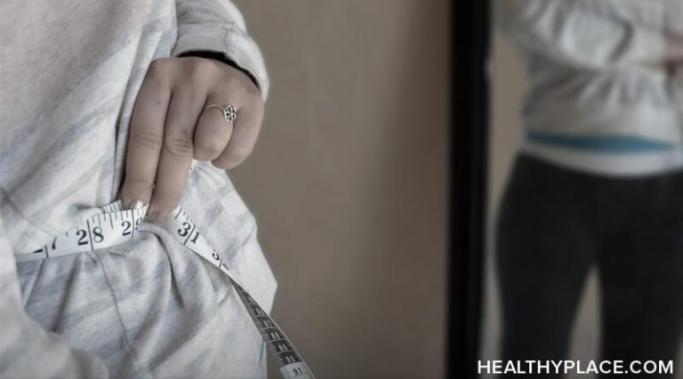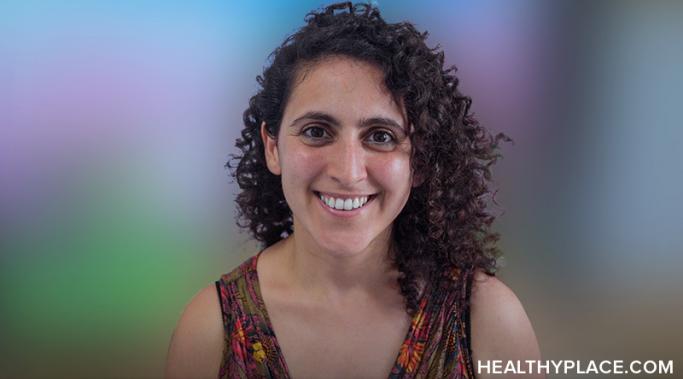Last week, I came across the idea of "thin privilege," a term I had been unfamiliar with up to that point, and as I researched this concept, I was forced to confront the role of thin privilege in eating disorder treatment—my own experience included. Thin privilege is a systemic ease and entitlement in which people with smaller bodies tend to move through society. More opportunities and advantages are often afforded to people who look the way mainstream culture has deemed acceptable or ideal. In terms of the eating disorder population, those who mirror the stereotype of "emaciated" are more likely to have their illnesses treated with serious concern and validation than people whose bodies do not reflect this arbitrary mold. But if eating disorder recovery is to be made accessible for all those who suffer—not based on outward size or shape—then it's time to address the role of thin privilege in eating disorder treatment.
Surviving ED
Can you ever fully recover from an eating disorder? It’s been over five years since I started my recovery for bulimia. I consider myself to be "free" from the vicious binge-purge cycle, but disordered thinking sometimes hovers in the background like a ghost. It’s something that I continue to manage, often with acceptance and compassion, sometimes with a tinge of frustration and shame, and always reminding myself that thoughts won’t necessarily lead to actions.
Loving yourself through an eating disorder relapse is important because, if you have experience with an eating disorder, then you know firsthand that the recovery process is not a linear route. Instead, it's full of detours and obstacles, forward motions and backward stumbles. Sometimes there are victories, but other times, a relapse can occur—and when it almost inevitably does, the question then becomes: How do you love yourself through that eating disorder relapse?
Do you equate an eating disorder with anorexia? Would you be surprised to learn that there are many different types and sub-types of the disease? And that most people with an eating disorder in the U.K. defy the prototype of the "emaciated teenager who refuses to eat"?
Some men play a role in causing eating disorders in women. When I first began to experiment with the behaviors that would morph into a severe battle with anorexia, my 15-year-old self had no idea I was about to be complicit in a systemic intersection between eating disorders and the patriarchy. Even as a teenager, I admired the ethos of feminism—I was drawn to independent, fierce, opinionated women, and I sought to become one myself. But I also harbored a secret, a paradox that challenged the same feminism I tried to be part of. I was determined to curate a body that mirrored cultural standards of beauty which had been impressed on females like me from the time I could remember. So with each calorie I restricted or meal I avoided, I reaffirmed the subtle power of gender inequality. I was not aware of this back then, but since I am now, I want to explore that men can play a role in causing eating disorders in women.
My name is Ziba Redif, and I’m the new co-author of "Surviving ED" at HealthyPlace. I’m a writer, researcher and photographer from London, with a background in philosophy and psychology. I’m passionate about unraveling the shame and stigma that envelopes mental illness through sharing my own experiences of disordered eating and my journey towards eating disorder recovery, as well as challenging the many stereotypes about eating disorders embedded in our society.
While anorexia, bulimia, and other related illnesses can affect the members of any population, evidence shows eating disorders have a disproportionate impact on youth in the lesbian, gay, bisexual, transgender, queer (LGBTQ) community. As of 2018, more than 50 percent of U.S. residents between the ages of 13 and 24, who self-identify as LGBTQ, have suffered from an eating disorder at some point in their lives. This research is based on a nationwide survey of 1,034 people within this demographic, and it stands to reason, this steep percentage is a result of the unique obstacles or traumas that LGBTQ individuals often experience. So let's discuss how eating disorders can impact youth in the LGBTQ community—and how to support those who face this painful reality.
As if this illness was not destructive enough already, a harrowing trend has developed in recent years, whereby the presence of eating disorders in young children has become more and more rampant. In fact, the number of children under the age of 12 who exhibit symptoms of an eating disorder has risen to the extent that anorexia and bulimia are now more common pediatric illnesses than type-2 diabetes. This is an alarming data point and combined with the reality that eating disorders are often undiagnosed or inadequately treated, this leaves many children at an increased risk for complications in both their physical growth and mental health as they become older. For this reason, it is crucial to understand how to identify the presence of eating disorders in young children, then to seek prompt and thorough intervention for them.
Each winter, the National Eating Disorders Association (NEDA) sponsors an event called National Eating Disorders Awareness Week, and it's almost time for this annual outreach to make its return in 2019. This year's NEDA Week 2019 is from February 25 to March 3, and the overarching theme of the event is "Come as You Are." As a nationwide movement, NEDA Week 2019 aims to confront the stigma of eating disorders, enhance the visibility of its epidemic scale, and point toward access to recovery. So as it approaches, here is a basic rundown of what can be expected from the National Eating Disorders Awareness Week 2019.
Eating disorders and pornography addictions have more in common than you might realize at face value. But when you break down the complex nuances, deep-rooted motives, and unaddressed traumas that often drive the symptoms of these issues, both eating disorders and porn addictions share many identical threads. In fact, I know firsthand this connection exists because I am a survivor of anorexia, and my husband is a recovered user of porn. Our two healing stories are uniquely our own, but the similarities between his obstacles and mine are also just too pronounced to dismiss as coincidental. So what do eating disorders and pornography addictions have in common? In case you are wondering, here is my perspective on this enmeshed and intricate dynamic.









